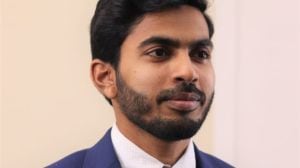The mystifying science of Olympic forecasts
On the eve of the Olympics, I wrote about a PriceWaterhouseCoopers study that used data on national economies, populations, political histor...

On the eve of the Olympics, I wrote about a PriceWaterhouseCoopers study that used data on national economies, populations, political histories, and past performances to project the overall medal count. I should also have pointed out a second model constructed by economists Andrew B. Bernard and Meghan Busse of Dartmouth and the University of California at Berkeley, respectively.
Both studies projected that while traditional powers like the United States, Russia, China, and Germany would impress in Athens, top nations would take home fewer medals than they did in 2000. “Olympic riches will be more widely distributed than before as the number of medals going to the top countries declines,” Bernard and Busse wrote. PwC projected that the United States’ medal haul might fall some 30 per cent… PwC, in its boldest forecast, said India was in line to boost its medal count from one to 10.
So how’d they do? If I were a gymnastics judge, I’d give them a 9.3 — a respectable performance, but out of medal contention. Let’s review the numbers. According to the official medal count, the haul of the top 30 countries fell to 706 medals, pretty close to PwC’s projection of 703 medals. But both models misfired in projecting that the traditional powers would sag…
The models might prove somewhat more accurate in 2008 if they tried to account for another important economic variable: a nation’s openness to human capital. Some nations have comparative advantages when it comes to certain sports (the Americans in basketball, the Norwegians in cross-country skiing) and comparative disadvantages in others (the Austrians in beach volleyball and the Jamaicans in bobsledding). But the free movement of people can alter the dynamics of sports. Slovenia, a country without much of a sprinting tradition, was represented in Athens by Jamaica-born sprinting icon Merlene Ottey.
It’s not simply a matter of countries being willing to bestow citizenship on athletes who are already champions. They must also welcome athletes earlier, before they are stars, or before they are even athletes. Middle-distance runner Wilson Kipketer, born in Kenya, competed for Denmak — a country in which he permanently settled after attending college there.
Excerpted from an article by Daniel Gross at http://www.slate.com
Photos


- 01
- 02
- 03
- 04
- 05





























